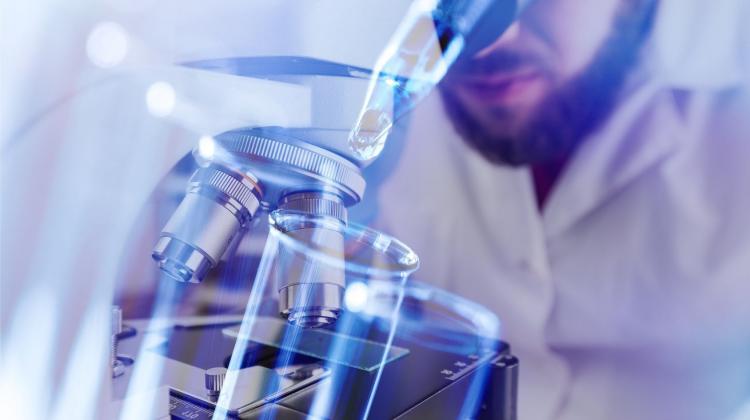Biobanks Form a Network
 Credit: Fotolia
Credit: Fotolia
The Polish Biobanking Network is looking for new units that could connect with it. The network will bring together Polish scientists involved in biological material acquisition, collection and research. It operates within the Biobanking and Biomolecular Resources Research Infrastructure – European Research Infrastructure Consortium BBMRI-ERIC and under the auspices of the Ministry of Science.
Biobank is a place where biological material and associated information are collected and stored. These are most often blood samples, from which DNA, RNA, serum and plasma, or mononuclear cells are isolated. Such material can be donated by both hospital patients suffering from specific disease entities and healthy people. All this so that scientists can carry out research on new biomarkers of rare and lifestyle diseases. The Polish Biobanking Network, which has been operating since 2017, already connects 43 Polish biobanks, or biorepositories.
According to biotechnologist Angelika Paluch from the Centre for Preclinical Research of the Medical University of Warsaw, there are population, specialized and mixed biobanks. They can be affiliated with different parent entities. Such units in Poland are most often universities, clinical units, research institutes, units of the Polish Academy of Sciences as well as private companies.
`More and more units in Europe create biorepositories of biological material. Biobanking has become not only a pan-European trend affecting the improvement of obtaining biological material, but even a necessity. It is a prerequisite for conducting reliable research and development work`, emphasizes Angelika Paluch.
The biotechnology expert explains that creating well-organized biobanks and sharing information about their biological material collections enables scientists from across Europe to carry out joint projects or combine collections of rare materials.
`All these activities support conducting reliable experiments and, consequently, identifying new therapies, discovering new drugs, developing biomarkers for diagnostic and prognostic purposes. They increase the chances of inhibiting the development or completely eliminating various diseases. Without biobanking, it is also difficult to imagine the development of personalized medicine, for example`, says lists Angelika Paluch.
The creation of a biobanking network in Poland within the Biobanking and Biomolecular Resources Research Infrastructure – European Research Infrastructure Consortium BBMRI-ERIC began in 2017. The leader of the consortium implementing the project is the Wrocław Research Center EIT+. The remaining partners are: the Medical University of Gdańsk, the University of Lodz, the Wrocław Medical University, the Medical University of Warsaw, the Medical University of Lublin and the Regional Science and Technology Centre.
Members and observers of the Polish Biobanking Network are units of various structural and organizational nature, as well as of various levels of advancement of biobanking processes. The Medical University of Warsaw identifies and recruits new units. The consortium also invites those only planning to open a biobank to cooperate.
`Any organisation involved in collecting, storing or testing biological material can join the network, regardless of the size of the collection or the degree of development of the biobank/biorepository. It is worth noting that joining and membership in the network is free`, says Angelika Paluch.
Among the benefits of participating in the work of the Polish Biobanking Network are trainings and workshops, free consultations on information security, ethical, legal and social issues related to biobanking and quality systems and IT systems. Network members gain access to the system solutions base and free software to improve work.
The biotechnology expert adds that joining the network makes it easier to establish scientific cooperation. The Polish Biobanking Network is within the structures of the European organization BBMRI-ERIC (Biobanking and Biomolecular Resources Research Infrastructure - European Research Infrastructure Consortium). Its members can share information about their collections in the BBMRI-ERIC catalogue and place the data they collect there. Thanks to this, the unit becomes more attractive for investors from the industrial and pharmaceutical research sector.
PAP - Science in Poland, Karolina Duszczyk
kol/ ekr/ kap/
tr. RL
Przed dodaniem komentarza prosimy o zapoznanie z Regulaminem forum serwisu Nauka w Polsce.

















